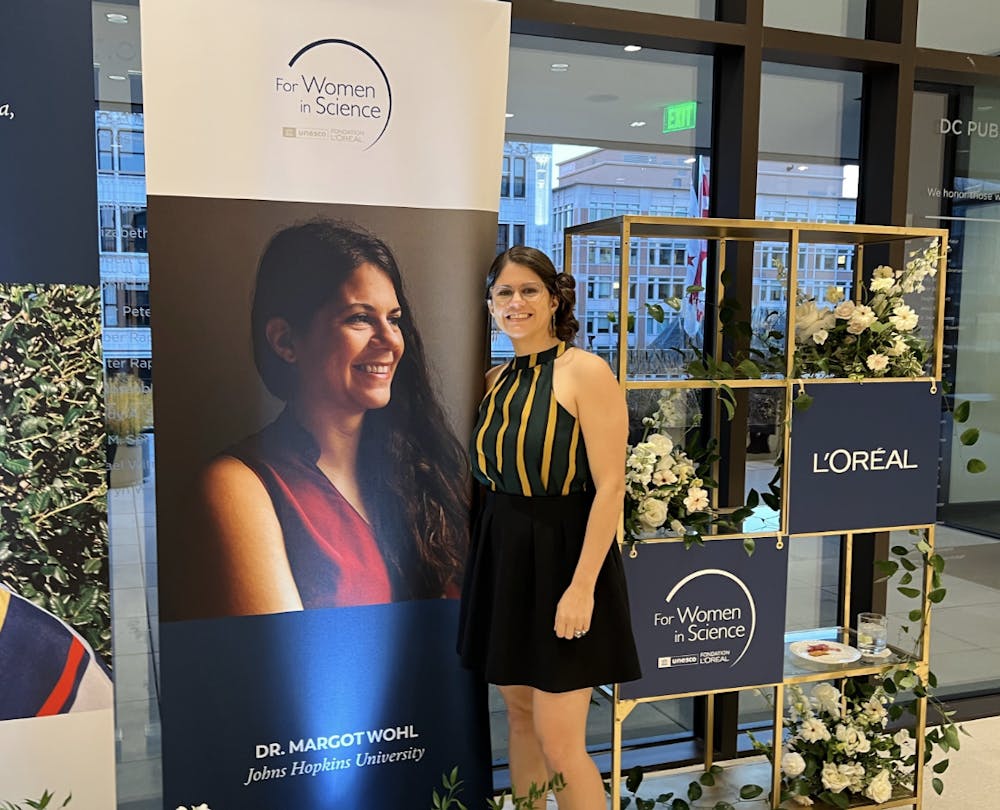Margot Wohl, a postdoctoral fellow at the Bloomberg School of Public Health, was laureated by L’Oréal’s 2022 For Women in Science (FWIS) Fellowship as one of this year’s fellows.
The L'Oréal USA FWIS Fellowship program is the U.S. component of the L'Oréal-United Nations Educational, Scientific and Cultural Organization (UNESCO) For Women in Science International Fellowships program. The program provides $60,000 fellowships each year to five female postdoctoral scientists in recognition of their contributions to the fields of science, technology, engineering and math (STEM) and their dedication to acting as science role models for younger generations.
In an interview with The News-Letter, Wohl recalled when she received the news that she had won the award.
“I was sorting mosquito larva under the microscope in the evening, and I learned the news through a phone call from an unknown number,“ she said. “I was overjoyed and surprised immediately because it is fairly competitive.”
Wohl's research at the McMeniman lab studies the egg-laying behaviors of mosquitos. She highlighted that her research helps expand the understanding of mosquito population growth and the transmission of dangerous diseases, such as yellow fever and Dengue, carried by mosquitoes.
“My research centers on the brain physiology underlying the sensing of oviposition-related odors and how the attraction to these odors is switched on at the appropriate time,” she said. “It is expected that research on the egg-laying behaviors of female yellow fever mosquitoes will eventually contribute to informing control strategies for these insects.”
The L'Oréal USA FWIS Fellowship was established with the goal of reconciling the gender gap in STEM fields.
Wohl described science as a male-dominated field in terms of cultural norms. She mentioned that another challenge for women in STEM is the lack of support for those who wish to start a family.
“Caretaking, responsibilities, no access to subsidize and childcare, pressure of being a tenure and other stresses are hard to balance,” she said. “And it could be rigorously competitive to being an academic while starting a family and raising children, which makes people reconsider their choices of being women scientists.”
When asked about her plan of using the funds, Wohl explained that she will use the funds to finance her salary, experiment supplies and outreach activities.
Wohl’s science outreach includes her podcast, titled Rad Scientist, which she strated in graduate school and produces in partnership with KPBS. In Rad Scientist, listeners are taken on a trip through the lives and discoveries of San Diego's scientists and researchers.
She also has plans of running a science storytelling show and conducting other outreach events for the public, with informative activities on mosquitoes and the public health issues surrounding them.
Wohl commented on the importance of the FWIS fellowship program.
“By making women scientists more visible, we expect younger girls to be able to see themselves and thrive in the STEM field,” she said.





